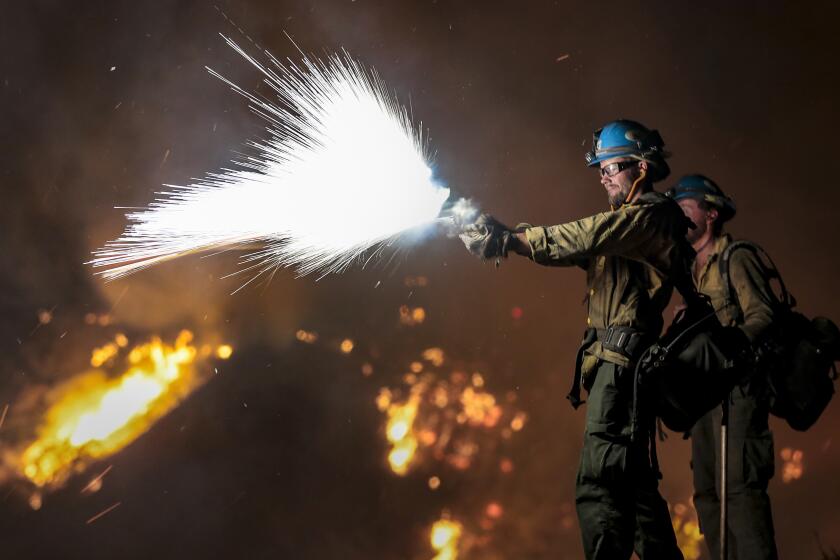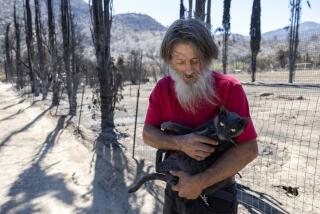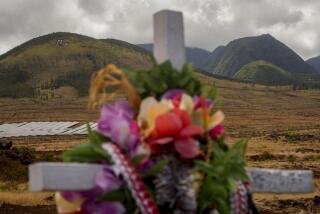In California town lost to fire, this market was lifeline. Can Berry Creek recover?

BERRY CREEK, Calif. — The Bear fire was burning in the mountains of Butte County, devouring acres of land and belching out black smoke as it inched toward Berry Creek and other communities in the area.
More than 40 miles away in Chico, Carin Dorghalli had trouble sleeping. The 26-year-old journalist had been covering the fire for the Chico Enterprise-Record. While in the field, she managed to check up on the family business — the Village Market.
It was the only gas station and convenience store in the area. Her father had purchased it 2006 and marked his financial success as an immigrant from Syria. For residents, the store was a lifeline and a community gathering spot, especially after the 2018 fire disaster in nearby Paradise, when the Village Market was one of the few stores that stayed open.
But when Dorghalli arrived at the store in the early hours of Sept. 10, she found the store leveled and smoldering. The fire had swept through the area, consuming cars, homes and trees. Ash and embers fell from the sky as if it were snowing. Dorghalli said she couldn’t help but cry.
Two years ago, “my dad and cousin did everything they could to keep it open,” Dorghalli recalled. Now the fate of the family business was far from certain, as was the future of Berry Creek.
California fires have destroyed thousands of homes this year, but they’ve also taken numerous small businesses, many of them lifelines for rural communities. Many more are at risk amid what could become California’s worst fire season ever.
A firestorm moved through this hamlet and Butte County a week ago. killing at least 15 people and destroying more than 720 structures, including two schools. In this remote region, it was the market that bought people together and has raised hopes that, if rebuilt, it could be a focal point for recovery.
As of Tuesday evening, the North Complex fire had burned more than 270,000 acres and was 34% contained. While scores of West Coast fires are burning from California to British Columbia, the conflagrations in Butte County have been the deadliest, although not the largest.
Fears of a significant spread of the Bobcat fire dissipated as Santa Ana winds failed to materialize, but foothill communities remain on high alert.
The state’s biggest fire is the August Complex, which by Tuesday had burned more than 790,000 acres in Northern California’s coastal range. Far to the south, the Bobcat fire in the Angeles National Forest was much smaller, at 36,000 acres, but was threatening the Mt. Wilson Observatory and adding to plumes of smoke fouling the Los Angeles basin.
In Berry Creek, longtime residents lamented the loss of the Village Market, curious if the family would rebuild or not.
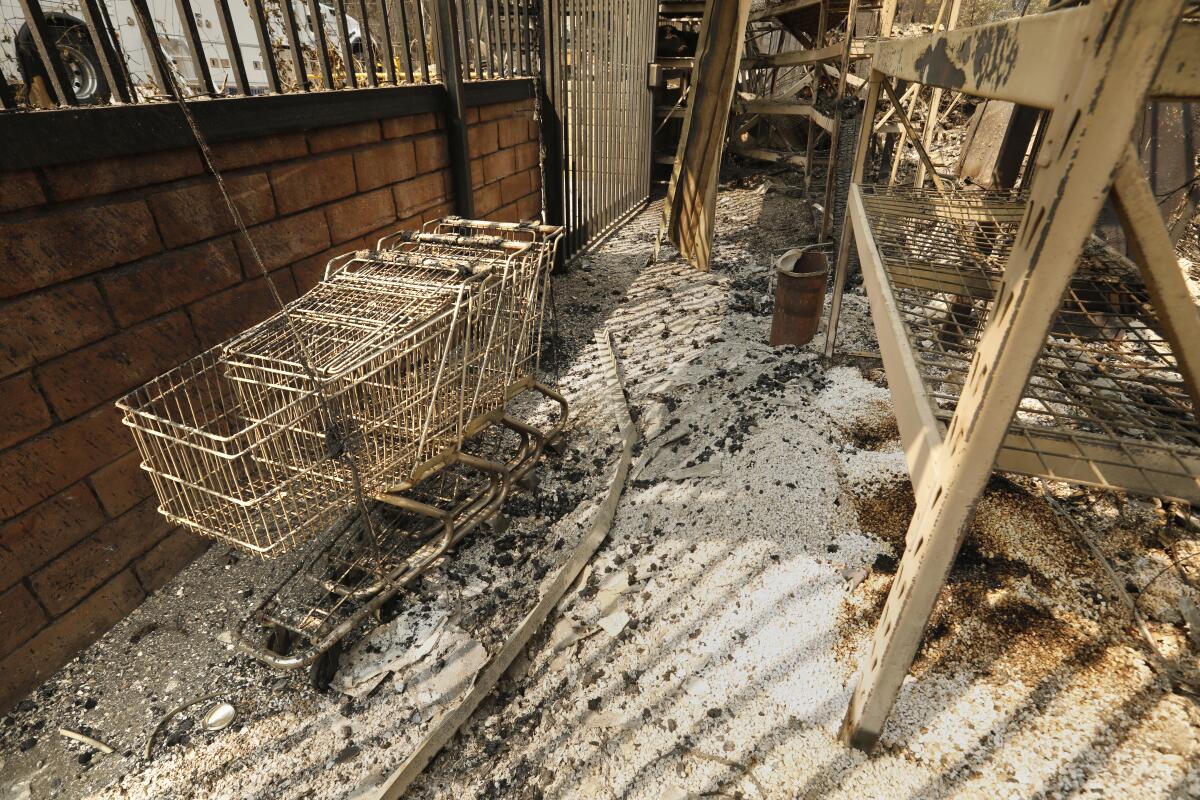
“People cried their eyes out,” said Kathy Bartley, 62, a resident of Berry Creek for 25 years. “It’s just sad.
“There’s nothing left up there.”
Sign up for Essential California
The most important California stories and recommendations in your inbox every morning.
You may occasionally receive promotional content from the Los Angeles Times.
The story of the Dorghallis begins in 1988, when Mitch Dorghalli migrated to the United States with his siblings from Fairouzeh, a village about 100 miles from Damascus, the capital of Syria. He landed in Detroit where his brother lived and worked at a convenience store, saving money where he could.
In 1989, he moved to Chico, Calif., where his sister lived. There he worked again at a convenience store, saving money in hope of starting his own business one day.
In 1992, Mitch Dorghalli was introduced to his future wife, Rana. She had lived in Homs, three miles away from his village in Syria. She was attending a local university, majoring in English when her parents decided to migrate to the U.S. that year.
As with most immigrants, life in the U.S. was challenging for the couple. They had to improve their English, adapt to American customs and deal with homesickness. But they carried on, aware they had opportunities here they did not have back home.
In 1992, the couple married and moved to Oroville, where a year later Mitch Dorghalli purchased Jerry’s Market. In 1994, the couple would give birth to the first of three children. They named her Carin.
For years, Carin Dorghalli’s father tried to balance life at home and work.
“He would work 80 hours a week,” Dorghalli said. “Customers saw him more than I did.”
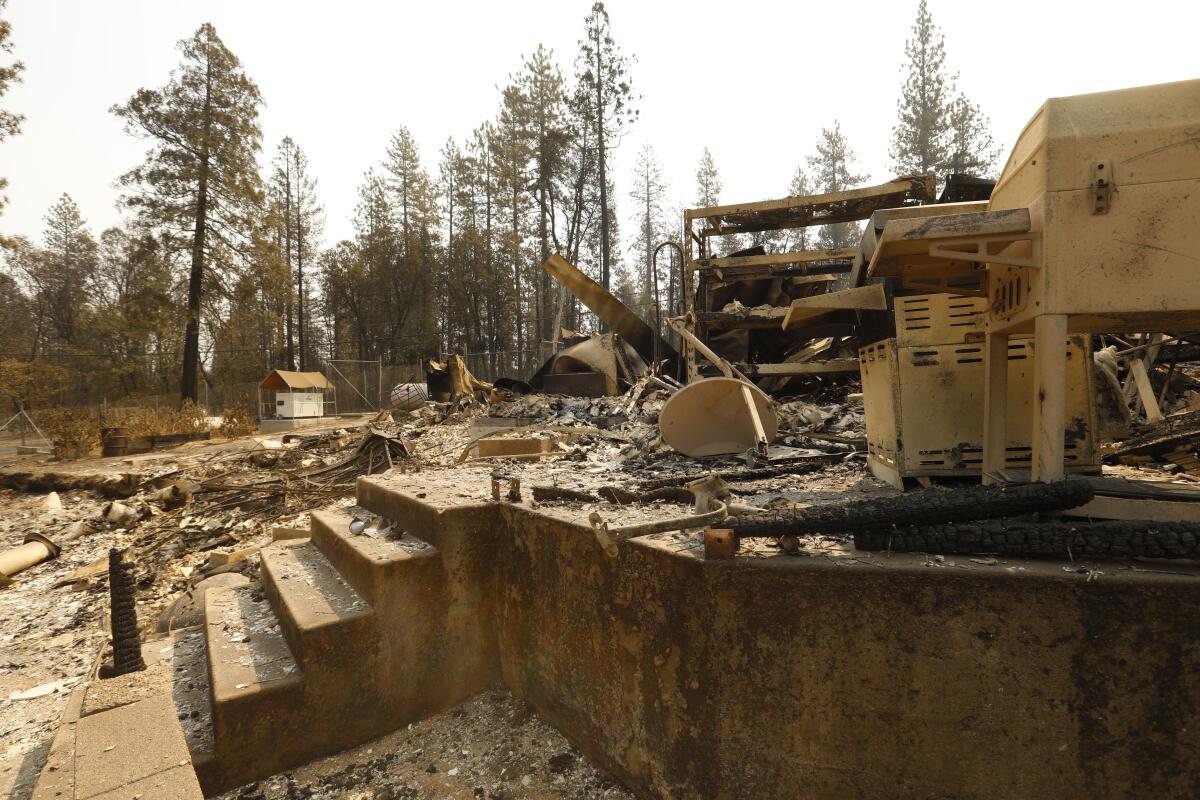
His workload was a frustrating and confusing thing for her. But as she grew older, she came to understand the family’s success was tied to the store. The business offered an opportunity for a better life. It would help pay for her college tuition at Cal State Chico. It also helped pay for her brothers’ college tuitions.
“I think my feelings were valid,” she said. “When you’re younger you don’t know how difficult things can be. We’ve never had to pay close attention to those things because my parents made sure we never had to.”
In 2006, Dorghalli purchased the Village Market in Berry Creek, serving the town and several communities nearby. Her cousin, George Dorghalli, managed the store.
This week, many of George Dorghalli’s customers recalled his generosity and care for the community.
Bartley, who has been living in a motel since evacuating, said he would sometimes give credit to people who couldn’t afford to pay for items.
“He’s always smiling and always thankful that you came into his store,” Bartley recalled. “He was such a very outgoing guy.”
Josh and Samantha Jarrell said when Mitch and George Dorghalli took over the store they brought in more food options. They added a microwave so if people purchased frozen dinners and didn’t have electricity at their homes, they could use the one in their store. They let people charge their telephones at the store and would offer free ice to certain people who needed it.
“There was a bulletin board you could post to sell or look for things,” Josh Jarrell said.
What made the store special was their interaction with the Dorghallis, especially with George.
“George was very community-oriented and always tried to help anyone he could.
Record heat. Raging fires. What are the solutions?
Get Boiling Point, our newsletter about climate change, the environment and building a more sustainable California.
You may occasionally receive promotional content from the Los Angeles Times.
The Jarrells said he would sometimes buy things for the couple whenever he went to Costco to stock up on store supplies. Adding to his kindness, Samantha Jarrell, a former employee, said Dorghalli would allow her to bring her kids to work on days when her husband was going to school. He also helped shift her hours so she could go to school to become a certified nursing assistant.
Now that the store was gone, they said they felt heartbroken and worried about the future of it and Berry Creek.
“I hope [they] rebuild,” Josh Jarrell said, adding that the town would not be the same without it.
Carin Dorghalli said since she mentioned her father’s store on her Twitter account, she’s heard from other residents and their positive experiences they’ve had there.
“I’m learning, as I speak to many evacuees, that the Village Market supported them in many ways,” she said. “I’m happy to hear the stories.”
She said the childhood perspective she once had has shifted.
“It wasn’t just my dad supporting us,” she said. “He was supporting and providing for a community.”
But, she added, “I hate that it took a catastrophic fire to appreciate that.”
At 8 a.m. that Wednesday, she called her father and told him the store had burned down. Over the phone, she could hear him crying. It was a rare thing. He hadn’t cried since 2015 when she had returned from studying abroad.
Later that day, she went on Twitter to honor the family business, writing: “He put everything into the business so my brothers and I could have all the opportunities in the world.”
On a recent Saturday afternoon, she was back at the market, taking photos for a column she was writing about the family store. She sat with charred metal, broken glass and melted merchandise in background, ready to take a picture when she broke down and cried.
It was the kind of cry that only she and her father could understand. No one else could.
More to Read
Sign up for Essential California
The most important California stories and recommendations in your inbox every morning.
You may occasionally receive promotional content from the Los Angeles Times.
